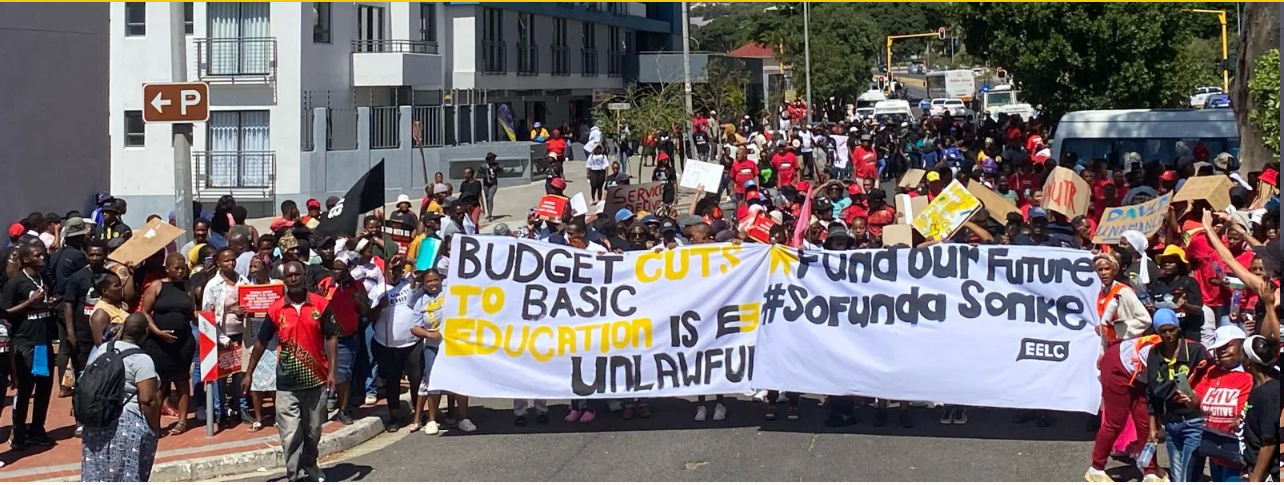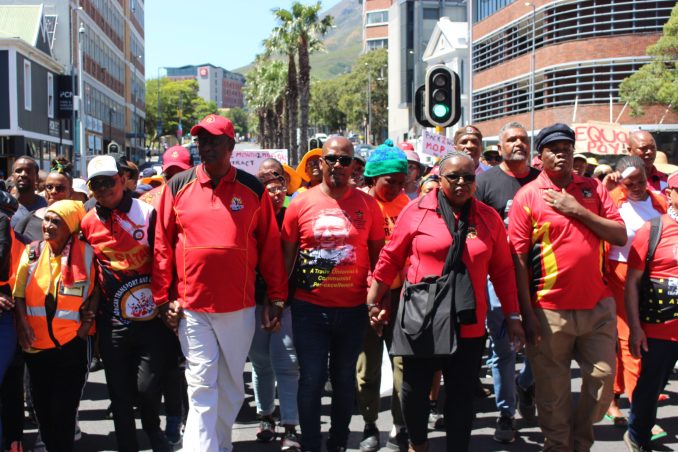BY SAFTU – this post first appeared on SAFTU
IN SUMMARY:
SAFTU’s Concerns:
- SAFTU is not hopeful about the upcoming Medium-Term Budget Policy Statement (MTBPS) on October 30, 2024.
- SAFTU expects severe budget cuts to be announced, which they view as harmful to the working class.
National Treasury’s Austerity Approach:
- July 2024: Government Communication and Information Systems (GCIS) congratulated the Treasury for achieving a primary budget surplus, the first since the 2008/09 financial crisis.
- The National Treasury claims this is due to their commitment to fiscal prudence and cost-cutting efforts.
Long-Term Fiscal Policy:
- Since 2013, the Treasury has focused on fiscal consolidation: slowing government spending, raising taxes, and managing public debt.
- This approach has led to cuts in essential services like health and education, affecting the working class most.
Proposed Fiscal Cap:
- Treasury is considering a “fiscal anchor” to legally cap government spending.
- Though the ANC’s Economic Transformation Committee disagrees, the Treasury continues prioritizing spending cuts to achieve budget surpluses.
SAFTU’s Critique of Treasury’s Approach:
- SAFTU argues that Treasury’s actions reflect a neoliberal agenda disguised as “scientific” economic management.
- They believe this austerity disproportionately impacts the working class, forcing them to bear the burden of economic issues.
Three Main “Attacks” on the Working Class:
- Cuts to social services (like health and education) reduce the “social wage” essential to the working class.
- Labour market deregulation leaves wages vulnerable to market forces.
- High interest rates from the South African Reserve Bank (SARB) cause unemployment, weakening workers’ bargaining power and benefiting financiers.
Austerity Rationale:
- Treasury claims reducing the budget deficit prevents high interest rates and encourages private sector investment.
- This includes refusing to fund public sector posts and rejecting wage increases for public workers.
Long-Term Effects on the Working Class:
- Since adopting GEAR policies in 1996, SAFTU reports worsening conditions: poverty for 30+ million people, 12.3 million unemployed (mostly youth), and poor healthcare and education.
Corporate Profits vs. Worker Losses:
- While the working class suffers, corporate profits and banking sector earnings have soared due to low wages and price inflation.
Future Under the Government of National Unity (GNU):
- The GNU’s focus on “fiscal prudence” suggests continued austerity with no improvement for the working class.
SAFTU’s Call to Action:
- SAFTU demands increased social spending and filling of essential service positions.
- They are organizing workers nationwide to mobilize and resist austerity policies, asserting change will only come through strong, organized action.






